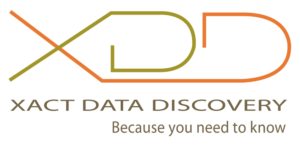Seeking Approval and Perfection in Dynamo, Technology-Assisted Review Series Part 9
Seven years after it first rose to prominence in eDiscovery, technology-assisted review remains an important, and at times controversial, tool in the eDiscovery practitioner’s toolkit
by Matthew Verga, JD, Xact Data Discovery
In “Still Crazy after All These Years,” we discussed the slow but steady growth in the importance of TAR. In “In the Beginning Was da Silva Moore,” we discussed the first case to address TAR. In “Questions of Choice in Kleen Products,” we discussed an attempt to force the use of TAR, and in “Reported Results in Global Aerospace,” we discussed the first instance of reported TAR results. In “A Negotiated Protocol in In Re: Actos,” we discussed a successfully negotiated TAR protocol. In “At a Judge’s Direction in EORHB,” we discussed a Judge ordering TAR use unprompted. In “Debating Process and Transparency in Biomet,” we discussed questions of process and transparency. In “Changing Horses Midstream in Progressive and Bridgestone,” we discussed trying to switch to a TAR approach after agreeing to a traditional one. In this Part, we review the question of whether to seek prior approval for TAR use.
The next TAR case to make headlines was Dynamo Holdings Limited Partnership, et al., v. Commissioner of Internal Revenue(USTC Sep. 17, 2014), which was a U.S. Tax Court case. In the case, the Respondent wanted the Petitioners to produce the materials on two back-up tapes (or produce copies of the tapes), but the Petitioners estimated that completing review of the materials on the tapes would “take many months and cost at least $450,000.”

